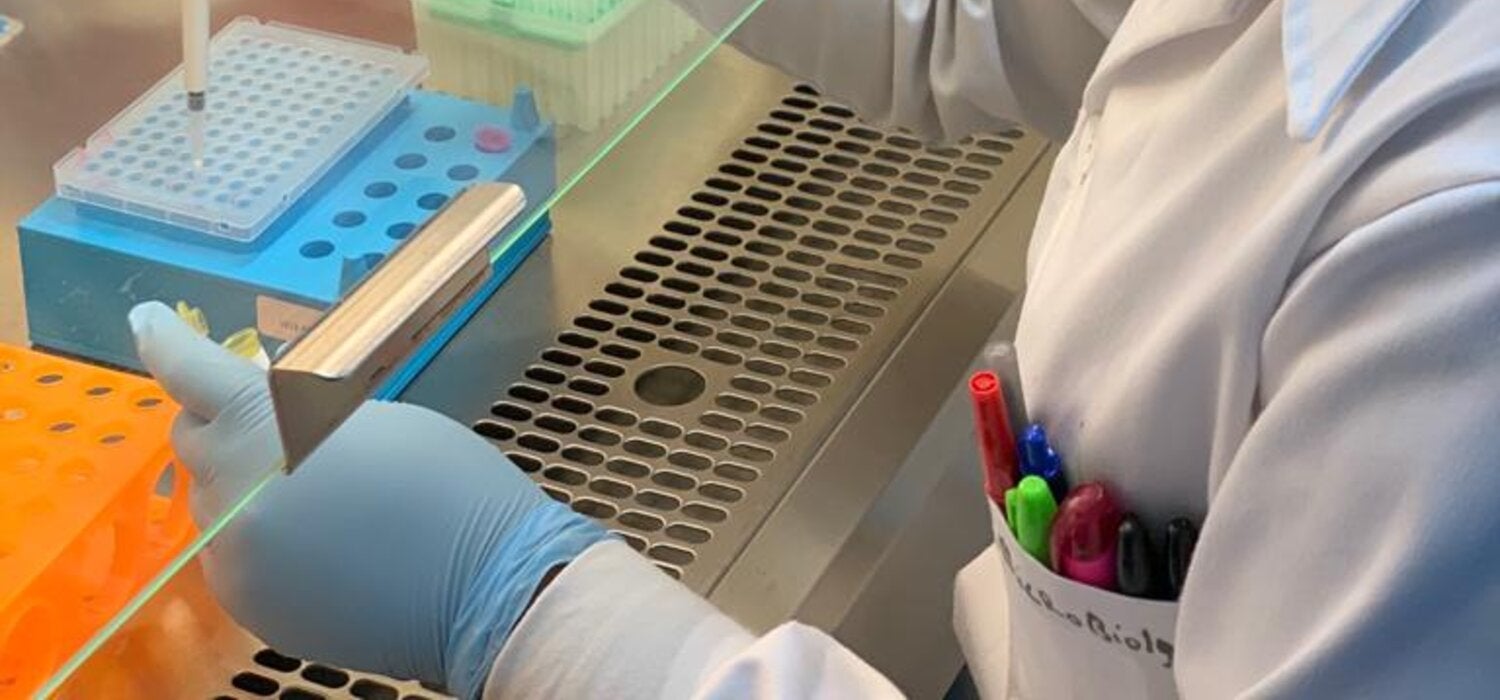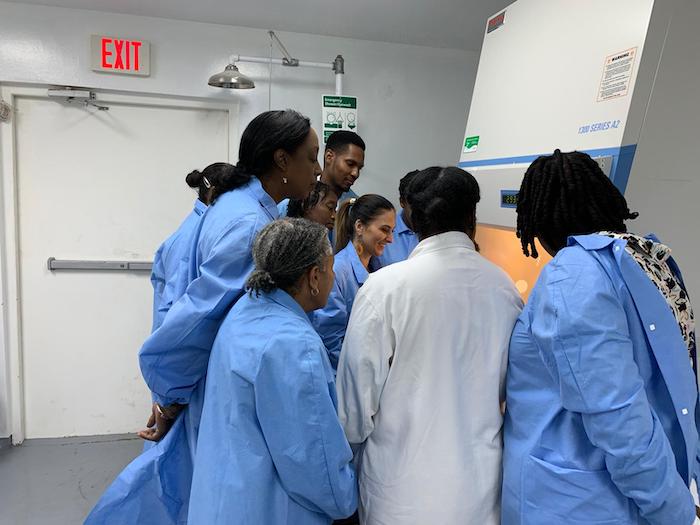Test, test, test,” was the call from The World Health Organization (WHO) director general, Tedros Adhanom Ghebreyesus, soon after COVID-19 was declared a Public Health Emergency of International Concern.
"You cannot fight a fire blindfolded, and we cannot stop this pandemic if we do not know who is infected,” implored Dr Tedros.
However, for many countries, scaling up national testing capacity has been a challenge. Global demand for essential equipment has placed additional barriers and delays in accessing testing reagents to conduct large quantities of reliable tests.
Like most countries in the Caribbean, Jamaica relies heavily on goods coming through the United States, including medical equipment. With increased competition for limited supplies and COVID-19 causing disruptions to supply lines, Jamaica’s capacity to sustain the required levels of testing was challenged.
As part of the Jamaica Country Cooperation Strategy, The Pan American Health Organisation (PAHO) Jamaica office has been actively assisting the Ministry of Health and Wellness (MOHW) to prepare for health emergencies, such as the COVID-19 pandemic, through the facilitation of capacity building training courses and the provision of essential equipment.
Donations
On 13 February, weeks after WHO Director General declared the COVID-19 outbreak a pandemic, PAHO provided MOHW with the first set of reagents to in preparation for the eventual arrival of SARS-Cov-2, the virus that causes COVID-19.
On 4 May, shortly after the initial cases of COVID-19 reached Jamaica, Dr Bernadette Theodore-Gandi, PWR for Jamaica, Bermuda and the Cayman Islands, handed over a donation of two extractor kits and enzymes to Dr Michelle Hamilton, Director of the National Laboratory Service, to maintain testing capacity to detect SARS-CoV-2.
“The arrival of the extractor kits came just in time. Without these extractor kits, testing would not be possible”, explained Dr Hamilton.
Extractor kits are essential to the testing process as they extract the nucleic acid from the virus, the first step in a complex process to test for infection.
However, the kits were just some of the essential equipment experiencing global shortages as countries competed for limited supply.
Dr Gandi highlighted that testing capabilities must be maintained in order for the COVID-19 response to be effective and emphasised that PAHO remains committed to assist Jamaica in procuring vital supplies through its extensive network of partners throughout the region.
“As the specialised health agency for the Americas, PAHO is in a unique position to be able to draw on our partnership agreements and networks to find alternative supply lines to assist countries in need,” said Dr Gandi. “COVID-19 knows no boundaries, therefore if one country is at risk, we all are at risk, therefore effective partnerships are essential.”
Training
Emergency preparedness is an important step in a health emergency plan and will dictate how a country will be able to respond. PAHO has been working with MOHW to build the capacity of the National Public Health Laboratory (NPHL) and the National Influenza Centre (NIC), to be able to conduct large scale testing when an outbreak begins.
As news broke of the international spread of SARS-CoV-2, PAHO conducted the first of two capacity building training sessions with staff from the national laboratories on 13 and 14 of February.
Training focused on molecular detection of SARS-COV 2 and results interpretation. At the completion of the training program, PAHO donated positive control, primers and probes for 300 samples, ensuring initial testing capabilities once SARS-CoV-2 reached Jamaica.
A follow up virtual training course was facilitated by PAHO/WHO in June to train laboratory staff in the operation of the RT-PCR machine to detect SARS-CoV-2, an essential tool for rapid and effective testing.
Tablets for contact tracing
Furthermore, PAHO donated 25 Android tablets, with the contact tracing application Go.Data installed, to MOHW to boost the capacity of COVID-19 surveillance and case investigation.
The Go.Data system was developed by WHO to collect and analyse large amounts of data collected during an outbreak to inform and assist the response of health authorities. This includes case data, contact data, laboratory and clinical data, and contact follow-up information.
“Digitising our tracking capabilities means that data can be analysed very quickly, enabling the response to be more targeted and effective, especially when operating in the field,” explained Dr Hamilton.
PAHO supported MOHW in the establishment of the Go.Data surveillance system through comprehensive training programs in all related surveillance system areas, data analysis, capacity building of laboratory personnel, and the training in the transportation of infectious substances to effectively respond to outbreaks of respiratory disease.
Dr Valeska Stempliuk, PAHO Advisor on Health Surveillance, Disease Prevention and Control; highlighted the importance of establishing reliable surveillance systems prior to widespread outbreaks.
“Effective surveillance is key to early detection and isolation, which saves lives,” explained Dr Stempliuk. “PAHO’s partnership with MOHW meant Jamaica was prepared, with a good surveillance system in place, when COVID-19 arrived.”
PAHO’s ongoing commitment
PAHO is committed to the ongoing training of MOHW staff and the provision of essential items through targeted donations. Training and donations are just some of a wide range of interventions PAHO is engaged in to assist the MoHW in the COVID-19 response.
Since the onset of COVID-19 PAHO Jamaica office has actively assisted MOHW to prepare and respond to the virus, through:
- Providing COVID-19 test kits and
- Providing PPE supplies for health care setting and Civil Sociated Organization
- Planning and coordination of the emergency response
- Facilitating training and capacity building programs
- Conducting COVID-19 briefing sessions for partners and stakeholders
- Providing risk communications materials and support
- Resource mobilization
- Case management
- Infection Prevention and Control
- Research






